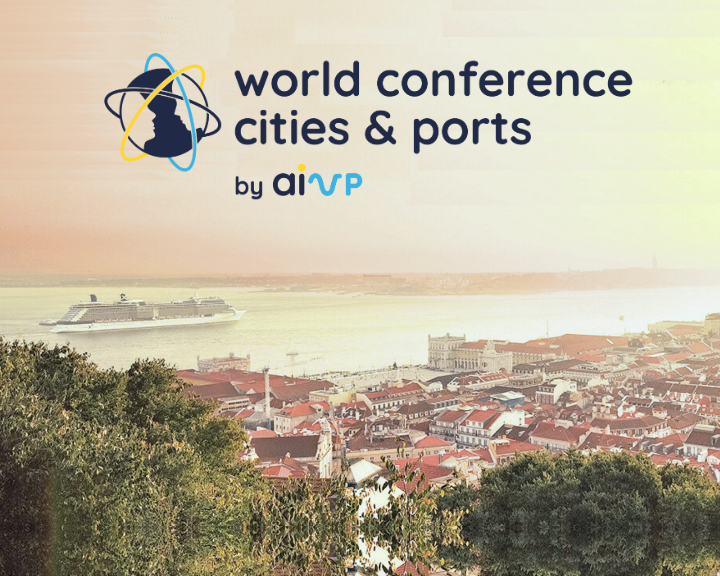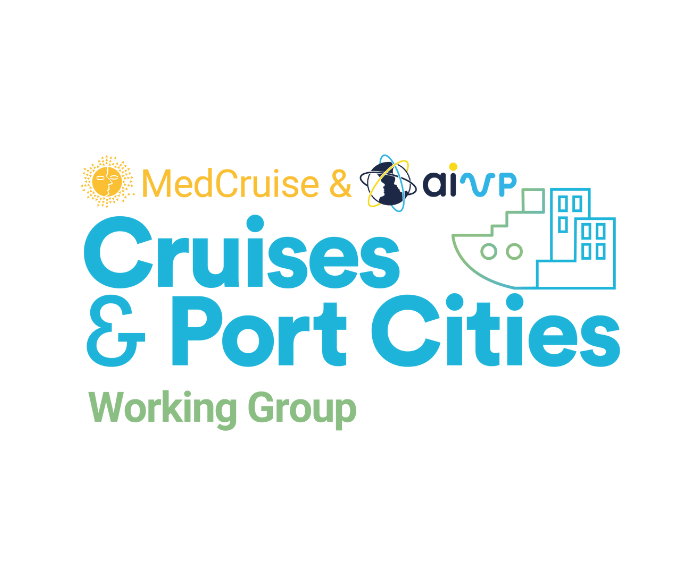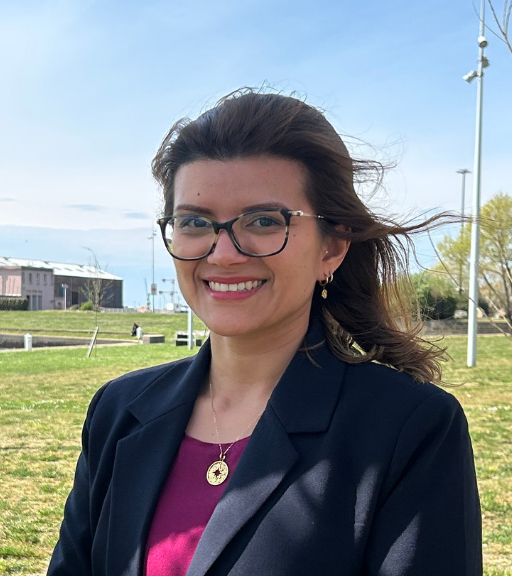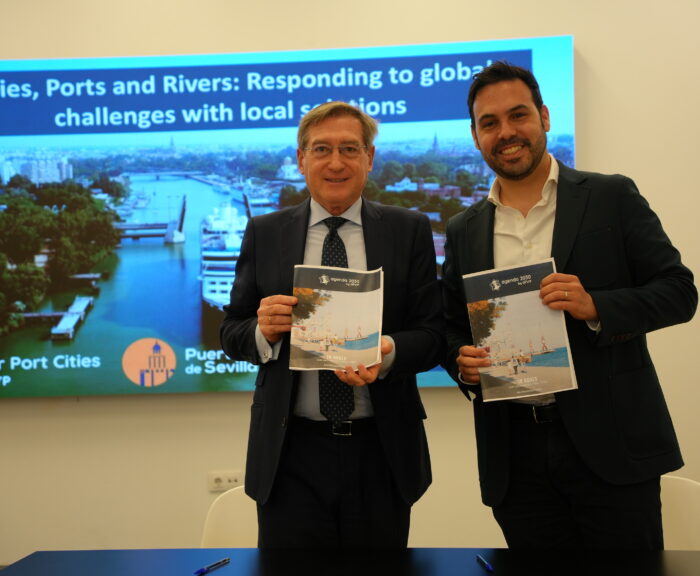World Conference Cities and Ports by AIVP in Lisbon
” Open Piers: Steering flows between people, planet, and port cities”
Lisbon, Portugal – 15th of April, 2024 – The International Association Cities and Ports (AIVP) is proud to announce the hosting of the World Conference Cities and Ports, which will take place from November 27th to 29th, 2024 in Lisbon, Portugal, under the presidency of Edouard PHILIPPE, Mayor of Le Havre (France). This significant event, themed “Open Piers: Steering flows between people, planet, and port cities”, will bring together experts, decision-makers, and key stakeholders from around the world to explore the challenges and opportunities related to the relationship between port cities and their environment.
This event is co-organised with the Port of Lisbon.
Piers are the ultimate interface between land and water. They are the connection between port cities and the planet. Their accessibility has been a key indicator for the evolution of the port-city relationship. They changed from being accessible in the past, to gradually becoming off-limits. Fortunately, there is an ongoing tendency to reopen the piers, establishing a new kind of port-city relationship. How permeable are these relationships today? What flows are shaping these interactions? How are port cities presenting local answers to global trends? How do they fit together? And how are ports reopening their piers?
Climate change is modifying how society relates to rivers, coasts, and seas. Geopolitical tensions affect cargo flows, with consequences on port activities and their surrounding territories. Demographic pressure in coastal areas is increasing. Biodiversity loss is a serious threat. Port cities are pivotal in accelerating certain transitions but also striking a balance, between the flows of freight, ideas, capital, energy, information, and knowledge.
Port city stakeholders must get through this period of uncertainty while also listening to their citizens. The development of new technologies must integrate social commitments. The inhabitants of port cities must be able to embrace the port as an integral part of their identity. They need to feel that their quality of life is an absolute priority. Otherwise, any attempts to achieve real change will have no impact.
All these issues and challenges are shaping new relationships and flows between the people, the planet, and port cities. In Lisbon, from the 27th until the 29th of November 2024, we will dig deeper into the opportunities that a renewed mindset towards the port-city relationship is bringing. We will discuss the resolutions taken in global fora, such as the 29th COP of the UNFCCC, the UN Ocean Conference or the G20 meetings, and the impacts they have on creating a healthier environment in port cities.
We will analyze the impact and technologies that the energy transition will have on port operations and the port city landscape. We will learn about the opportunities linked to the blue economy and how it is redefining the role of ports and port authorities. We will examine innovative solutions and norms to protect the environment. We will talk about new forms of port-city governance and the socio-cultural integration of ports. We will certainly analyze the new configurations of port-city interfaces, in rivers- and seaports, how they are responding to climate change and how activities generating important flows, such as cruises, can be integrated into port cities.
The World Conference Cities and Ports by AIVP in Lisbon will be the ideal opportunity for stakeholders from around the world to come together, share their experiences, and collectively define pathways to a more sustainable future for port cities.
Join us in the Portuguese capital to explore together the opportunities offered by new ways of thinking about the port-city relationship and to prepare our piers for a promising future!
For more information and to register, please visit the AIVP website: https://aivpworldconference.org/
About the Port of Lisbon
The Port of Lisbon stands as a prominent European port with a strategic Atlantic orientation, serving as a direct gateway to the Iberian market. Situated in the heart of the largest national consumption centre, its significance extends far beyond local borders. It is a multifunctional port, composed of 15 port terminals dedicated to all types of cargo and one for cruise passengers, operating 24 hours a day, 365 days a year, and offering the best navigation conditions for all types of ships.
The port of Lisbon has a capacity for one million containers and 11 million tons of non-containerized cargo per year, as well as for hundreds of thousands of cruise passengers who pass through Lisbon annually.
The port benefits from being situated in the Tagus estuary, with a liquid basin of 32 thousand hectares, sheltered and deep. Features that give it the best navigation conditions, both for large ships and for any nautical activity.
About the AIVP
The International Association Cities & Ports works to improve port-city dialogue and to promote cooperation between local and regional government authorities, port authorities, citizens, and economic stakeholders. Today, nearly 200 AIVP port city members from all over the world are committed to putting port-city dialogue at the heart of their urban, port, and economic development projects. As port cities are on the front line when it comes to sustainable development issues, the Agenda 2030 by AIVP provides an invaluable framework for testing and deploying innovative practical solutions, while retaining the unique character of each port city.
For more information, visit: https://www.aivp.org/
Follow @AIVP on LinkedIn and @aivp_net on Twitter
Contact
Annabelle ODIEVRE, AIVP communication manager/ aodievre@aivp.org / +33 2 35 42 76 12






